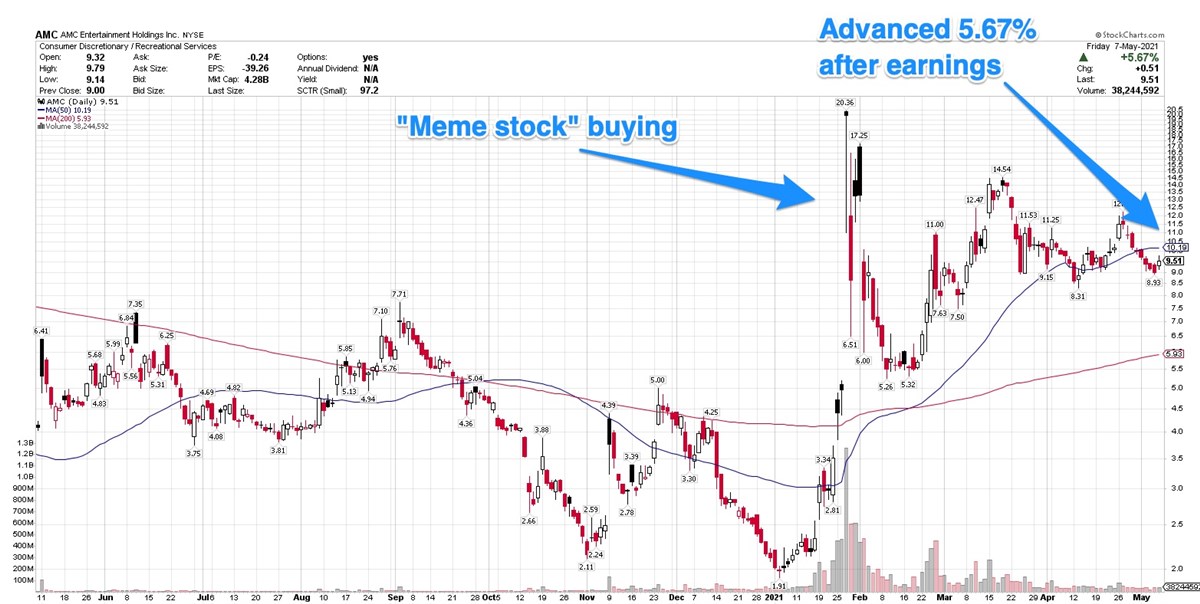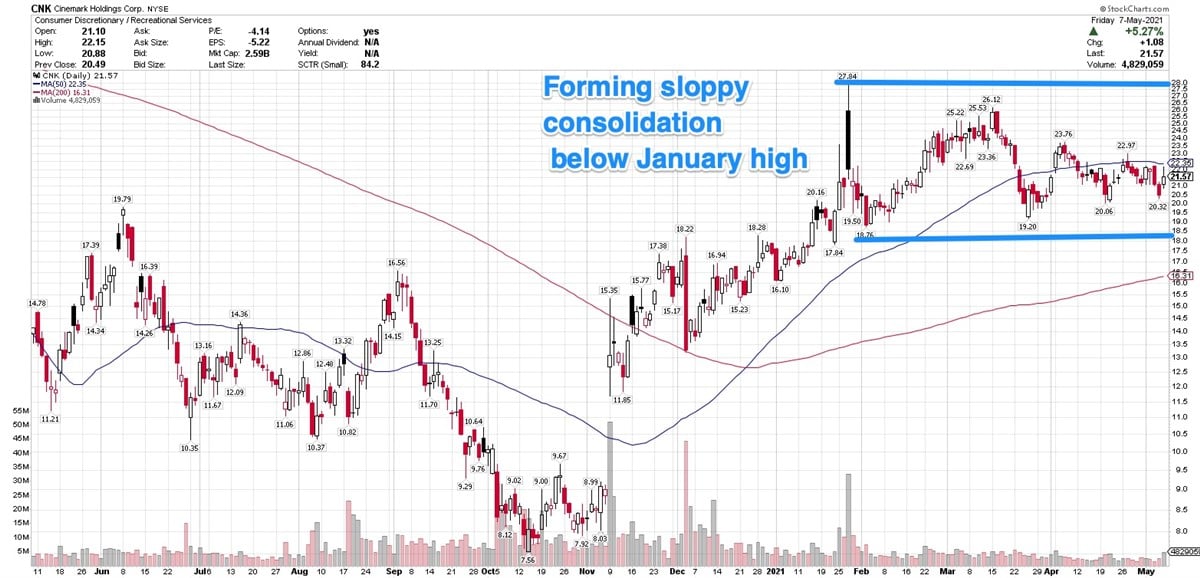Outlook Improves For Movie Theaters, But More Losses Loom
Movie theater stocks rose Friday, and losses are expected to narrow, but the long-term health of these companies may still prove to be a horror show.

This story originally appeared on MarketBeat
The upside trade came despite the beleaguered theater chain reporting a first-quarter loss of $1.42 per share, missing analysts’ estimates. Revenue, too was below expectations, although the company said it expects business to pick up in the coming months.
Of course, there are a few factors behind the predicted rebound. The number of vaccinated Americans is growing, meaning more people are getting comfortable getting out and about again. There’s a slate of new summer movie releases that industry analysts believe bring people back to theaters.
However, greater adoption of streaming technologies could threaten theaters’ business in the coming years, despite optimism about reopening.
If you didn’t know about AMC’s stint as a favorite on the WallStreetBets subreddit, you might look at AMC’s chart and think some stunningly positive development occurred in late January.
Although trading has settled down in recent months, short interest remains high and is growing, which could result in more volatility if there is a bout of short covering.
But let’s look at the company itself, to see whether Friday’s rally was warranted, or just a blip.
Debt Levels Rising
AMC is still carrying extraordinarily high levels of debt, totaling $11.05 billion at the end of the first quarter. That number rose in 2020, and is higher than the company’s $10.49 billion in assets.
It’s worth looking at the company’s performance in 2019 to get a sense of how the downhill slide was under way before the pandemic. In 2019, AMC reported a loss of $1 per share, although revenue grew that year.
Bankruptcy is still a possibility for this company, regardless of the boost in market cap this year from the Wall Street Bets trades, and regardless of the company announcing this year that it landed new financing to avoid that fate.
Wall Street’s expectations are mediocre, at best.
It’s true that business is picking up, and analysts see a yearly loss of $3.36 per share, a big improvement over last year’s pandemic-era loss of $16.15 per share. For 2022, the loss is expected to be $1.01 per share.
AMC is not the only movie theater chain in trouble. Cinemark Holdings (NYSE: CNK), which operates 325 theaters and 4,436 screens in 42 states, also traded higher Friday.
However, it has some poor fundamentals and other operational quirks in common with AMC, although not nearly as dire. Debt totaled $3.93 billion at the end of 2020. That was less than assets of $5.56 billion, but higher than debt at the end of 2019, which shouldn’t be a surprise, given what happened to theaters.
Year-To-Date Price Gain
Cinemark’s 2020 revenue was $690,000 down from $3.28 billion in 2019.
This was never a meme stock, but has benefited from the market’s gradual recognition that eventually, pre-pandemic life will return, in some form. The stock gapped up 45% in early November, following an earnings report, and advanced 23.89% year-to-date, without any WallStreetBets roller coaster ride.
The company lost $5.25 per share last year, and that’s expected to narrow to a loss of $3.06 per share this year. The loss in 2020 followed many years of profitability, which is expected to return in 2022.
However, revenue began slowing in late 2019, and of course, continued in every quarter since then.
Cinemark is forming a sloppy consolidation below its high of $27.85, reached on January 27, the same day AMC rallied to its high. Clearly, Cinemark’s move was a “sympathy” play, or at least a hopeful play by investors hoping to tag along with AMC’s meme stock status.
Although a consolidation can offer a good set-up for a new rally, and that could well be the case for Cinemark, this is not a buy right now. That’s because the fundamental and business case for this, and all movie theater stocks, remains in question.
Featured Article: Net Margin – Understanding the Different Kinds of Profit
The upside trade came despite the beleaguered theater chain reporting a first-quarter loss of $1.42 per share, missing analysts’ estimates. Revenue, too was below expectations, although the company said it expects business to pick up in the coming months.
Of course, there are a few factors behind the predicted rebound. The number of vaccinated Americans is growing, meaning more people are getting comfortable getting out and about again. There’s a slate of new summer movie releases that industry analysts believe bring people back to theaters.
However, greater adoption of streaming technologies could threaten theaters’ business in the coming years, despite optimism about reopening.





